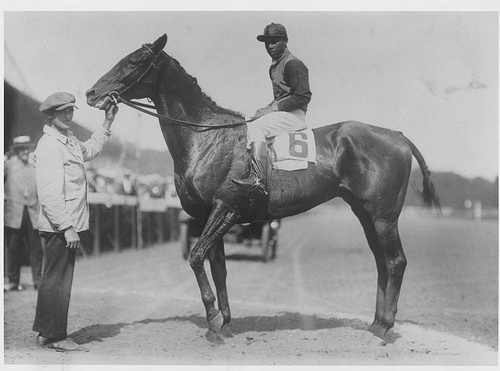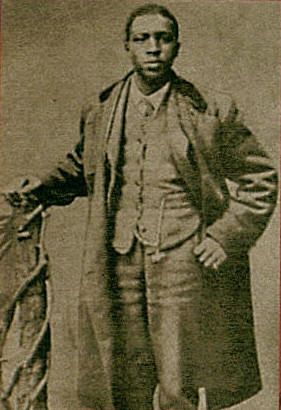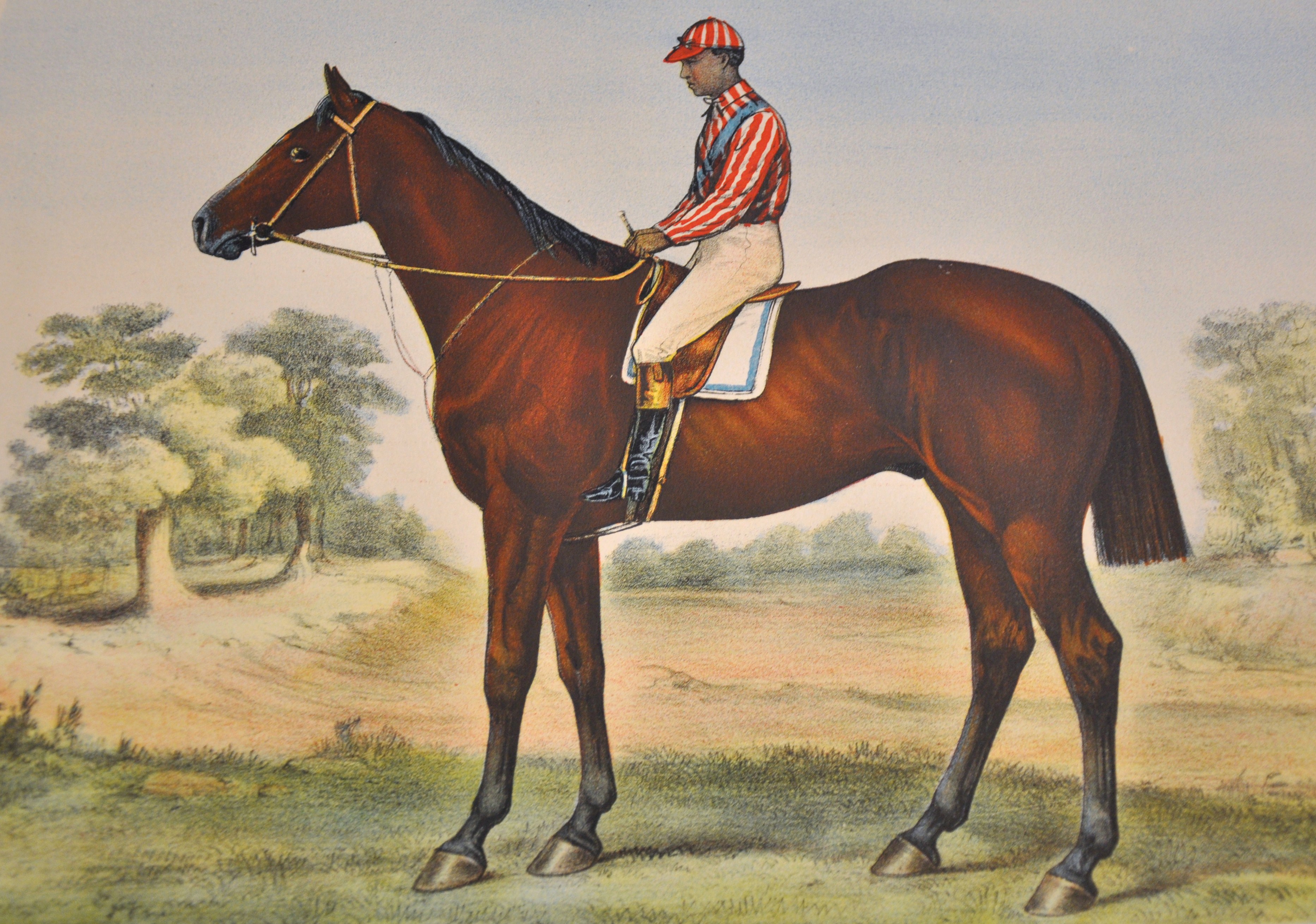Oliver Lewis became the first jockey to win the Kentucky Derby, America’s longest continuous sporting event on May 17, 1875. His time of two minutes 37.75 seconds also set an American record over the mile and a half distance (the Kentucky Derby became a 1.25 mile race in 1896). Lewis was one of 13 black jockeys in the 15-strong field. Early in the race, he joined a small group behind Volcano, who led the race from the start.
Oliver Lewis was born in 1856 in Fayette County, Kentucky; his parents were Goodson and Eleanor Lewis. Very little is known about Lewis’s life, but according to the Black Athlete Web site he was “A family man, a husband and father of six children.” Lewis was 19 years old in 1875 when he entered the inaugural Kentucky Derby riding Aristide, a colt owned by H. Price McGrath and trained by Ansel Williamson, who was also black. In fact blacks dominated racing in the late 1800s, winning 15 of the first 28 Derbies according to BlackAmericaWeb.com and training six of the first 17 winners. By the early 1900s, however, blacks had been pushed out of the business, which had also become wealthier and less accessible to the working classes. Black jockey James Winkfield won the Kentucky Derby in 1901 and 1902, but after 1921 there were no black riders in the race until Marlon St. Julien in 2000.
The 1875 race was held on May 17 at the newly-opened Louisville Jockey Club race track, now known as Churchill Downs. Lewis’s mount Aristides was one of two horses entered in the race by owner H. Price McGrath in hopes of netting the $2850 prize money. But it was the other horse—Chesapeake, ridden by William Henry—that was expected to win. Lewis’s role in the race was to force the pace so that Chesapeake could take the lead when the rest of the field tired. Aristides and Chesapeake started the race as favorites. Aristides’ reputation for powerful starts and Chesapeake’s strong finishing made them the two most likely contenders, but it was Volcano who took the lead from the start and pulled away, leaving Aristides, closely followed by Verdigris and McCreary just behind.
Wondering what was going on behind Lewis apparently eased up and looked back, but was waved on by owner McGrath, who was trackside on the home straight. Larry Muhammad, writing for BlackAthlete.net quotes the Courier-Journal‘s play-by-play, published the next day: “Right gallantly did [Aristides] the game and speedy son of Leamington and Sarong answer the call to his forces, for he held his own all down the stretch in spite of most determined rushes on the part of Volcano and Verdigris, and dashed under the wire the winner of one of the fastest and hardest run races ever seen on track.” Lewis and Aristides led Volcano home by two lengths, with Verdigris trailing in third and Chesapeake eighth. Lewis’s time for the mile and a half long course (reduced to a mile and a quarter in 1896) was two minutes 37.75, an American record for the distance.
Lewis’s achievement in the opening year of what has become America’s longest-running sporting event went almost unrecognized for over a century. He rode Aristides to second place in the Belmont Stakes, which later became one of the “Triple Crown” races, and won a total of three races at the Louisville Jockey Club that season. He never rode another Kentucky Derby, but it is known that he attended the 33rd race, in 1907. Lewis’s career as a jockey did not last long. After a spell working as a day laborer Lewis began providing notes on racing form to bookmakers and later became a bookmaker himself, a profession that was then legal in the United States. Lewis’s methods of collecting data and compiling detailed handicapping charts have been likened to the systems used by the Daily Racing Form. Lewis passed on his bookmaking skills and business to his son James.
After retiring, Lewis worked for a short time as a day laborer, but then began providing handicapping tables and racing forms to bookies. He later became a bookie himself which was legal in Kentucky at that time.
Lewis married although his wife’s name is unknown. The couple had six children including James who inherited his lucrative bookmaking business. Oliver Lewis died in Lexington, Kentucky in 1924 at the age of 68.
Sources:
http://biography.jrank.org/pages/2969/Lewis-Oliver.html#ixzz48rI5zaFU
https://goodblacknews.org/tag/oliver-lewis/





